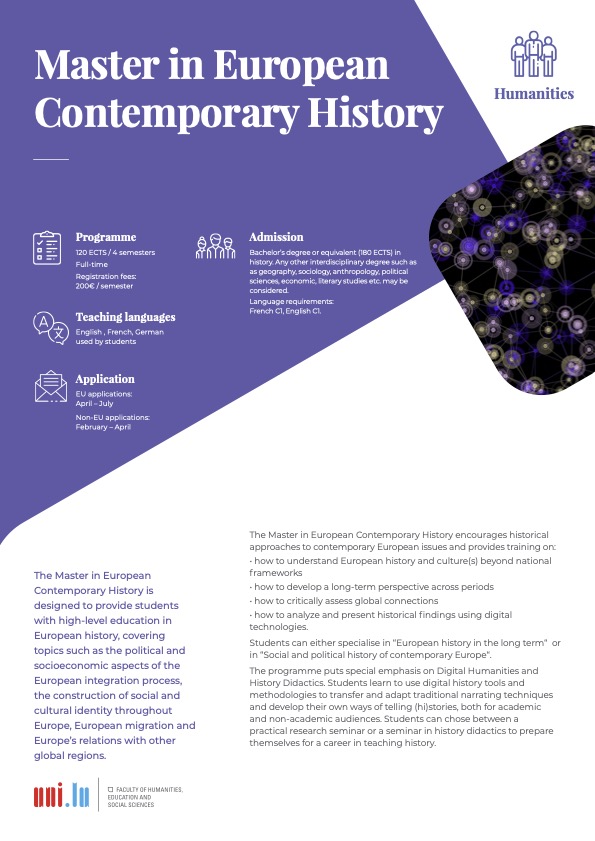Career opportunities
Career opportunities include employment in European and international institutions and organisations, political and cultural institutions, media and cultural management, diplomatic services, senior civil appointments, secondary education, archives and libraries. Students can also continue their studies at doctoral level.
More info

Learning Outcomes
At the end of the programme, students are able to:
• demonstrate knowledge and critical understanding of history;
• compose a historiographical review;
• analyse the primary and secondary sources pertaining to the perception of events;
• critically engage with teleological views of progress and historical change;
• construct and present a coherent historical argument;
• critically analyze sources and assessment work using theory to good effect;
• address a research question and propose a relevant and informed action plan;
• organise, structure and present ideas and work in a clear, logical and coherent manner;
• employ discipline-specific terminology and language;
• collaborate in a humanities research teams;
• understand key concepts and practices of digital history;
• understand team-oriented project-based humanities work.
